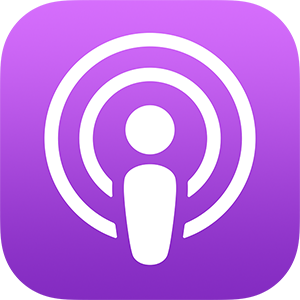We are less than a week out from super Tuesday, when more delegates to the presidential nominating conventions will be up for grabs than on any other single day. The news market is increasingly saturated in our digital age, and an audience with an appetite for fair reporting has more choices of where to get their news, than ever before.
Ian Hill, who manages strategic content partnerships for TEGNA, stressed their storytelling strategy starts with listening. “That’s really been a focus of my work over the last couple of years, has been working with our journalists to teach them and show them how they can use social media to listen to their audience,” said Hill. “Inform their stories as they’re trying to decide what to write and then how to write it.”
Ahead of Super Tuesday, we sat down with Hill on this week’s episode of #Storyteller, to find out how TEGNA’s 62 local TV stations are approaching their coverage of arguably the largest news story of the year.
On listening to your audience:
The biggest challenge today is there are so many places, not that you have to stay in touch with, but that you want to stay in touch with. There’s a lot of exciting opportunities out there and you want to be able to engage with audiences on TikTok, you want to be able to engage with audiences on Snapchat, and you want to hear what those people are saying on Facebook and Twitter. But realistically, we only have 8 hours a day and 40 hours a week. So the real challenge is focusing your excitement in an area that’s going to benefit you the most as a storyteller. Whether that be focusing your attention on how you share your stories on a platform where the audience is mostly your audience for your type of content, or it’s focusing your efforts on listening to the audience on a specific platform where they’re talking about the subjects you cover.
On what he learned covering the 2012 election:
I went to 5 college campuses in the Bay Area and interviewed 10 college students at each…what fascinated me at the time and what I learned, is just how much you can get out of listening. Taking a moment, asking a person a great question and sitting back and listening to what they say.
…Asking them okay, ‘what do you know about the election?’ They’d all kind of shrug, ‘you know, oh I don’t know much. I’m really not following it’. And I think a lot of journalists, unfortunately at that point, would kind of walk away. Okay, alright, young people aren’t really thinking about politics. So we asked a followup question, ‘okay what issues do you care about in the election?’ And what we found was they all had these incredibly informed opinions…When I got past that initial layer of well, I’m not following the election, and I asked that followup question and I listened to what they had to say, we were able to really pull a lot of great information out of that and produce content and stories for radio and digital that focused on how intelligent and tapped in that generation was. And looking at the role they played in that election and other elections, I think that was really important…It was about listening. We started with that background and listened to the audience and it led us to tell impactful stories.
On how TEGNA is listening to audiences in 2020:
All comes down to making sure that our audiences have a direct line into our newsrooms, and that we’re listening to them. We’ve got a couple projects we’ve already rolled out based on that. Our stations here in Ohio are doing a project called 88 counties in 88 days, where we have stations in Columbus, Cleveland, and Toledo, and they’re going to visit all 88 counties in the state. Obviously we’re a super key state in the election. They’re going to talk to voters in every county and hear what they have to say. Our Houston station, KHOU, is really focused on transparency and fact-checking. They’re putting a lot of resources into listening to what people are saying on social and the issues they’re talking about, and then verifying those facts. We have a really cool podcast out of our station in Dallas, WFAA. It’s called “Y’all-itics”, which is kind of fun. Every week, a couple of journalists, they crack open a beer and they explore a single hot topic that’s impacting Texans ahead of the 2020 election. It’s not done in studio, they go to brew pubs, they go to taquerias, they go to local gathering places, they hear what people have to say and they talk about those. They’ve already had a lot of success just turning what they hear into stories.”
Subscribe to #Storyteller wherever you like to listen:
